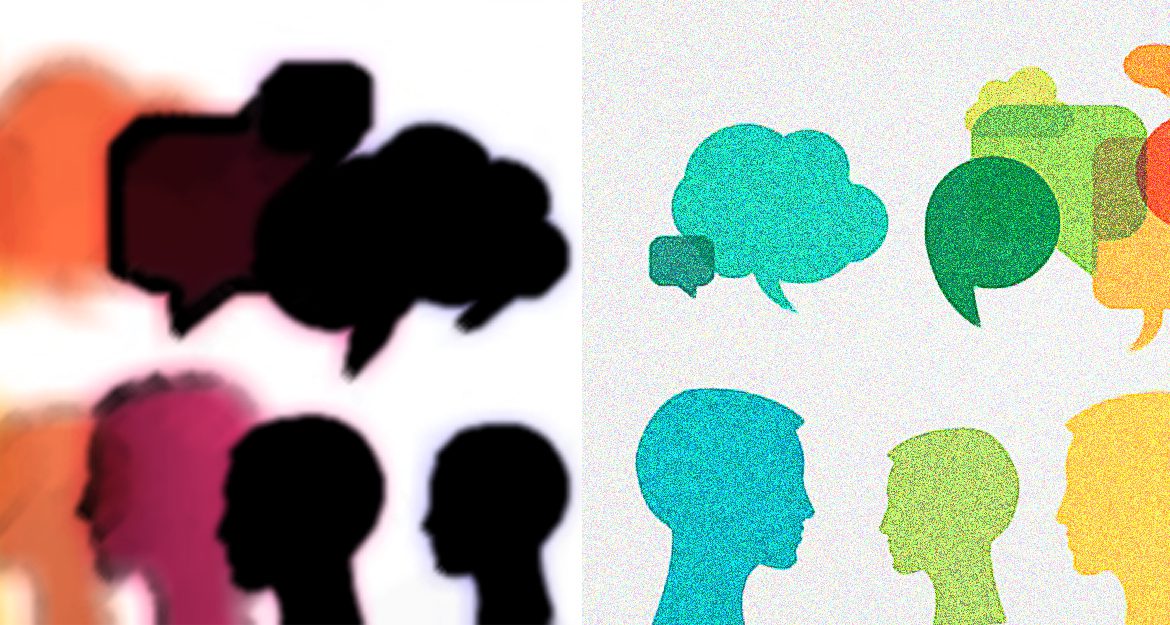202 Vote
Breaking free from backbiting: first steps toward “good words” on OstadElahi inPractice

The latest articles posted on e-ostadelahi.com, and the richness of the comments triggered by the polls published with them, have shown that the issue of backbiting is truly omnipresent in our daily life. OstadElahi inPractice is bringing this theme online again today, in a very original way. Once a character weak point has been identified, it becomes a matter of controlling it. Breaking free from backbiting – First steps toward “good words”: the title of this new lab self-explanatory. Here is its short description:
Breaking free from backbiting
First steps toward “good words”
“Are you prone to backbiting?” Our immediate response to this question would certainly leave room for no doubt: “Of course not!” Backbiting seems so obviously unethical that no one would think of themselves as a “backbiter”. Yet, there is no single path to backbiting. No matter how obvious or subtle they may be, experience has shown that we go down such paths much more often than we would like to admit. The Breaking free from backbiting lab is meant to help us become aware of that fact and understand the inner causes that lead us to backbite. As such, it constitutes a first step toward practicing the following motto that Ostad Elahi had made his own: “Good thoughts, good words, good deeds”.
As with the previous labs offered by OstadElahi inPractice— Toward an in vivo practice and Connecting with the Divine —, which remain available, this Breaking free from backbiting lab will allow anyone who wishes to do so to engage with in a tailored curriculum organized in 5 phases, and to benefit from numerous resources related to the issue
Other labs on OstadElahi inPractice

|
Toward an in vivo practice
What would be the best approach to begin an ethical and spiritual practice? Focusing on one’s thoughts? On concepts? On actions? What method would be most effective? How can one avoid falling into an imaginary practice with only the illusion of progress? In this first open curriculum lab, it will be up to you to progressively define the content of your work by exploring the foundations of an ethical and spiritual practice that is truly adapted to the soul—that is, an in vivo practice. |
|
|
Connecting with the Divine
What is prayer? What purpose does it serve? What is its role in the process of spiritual perfection? Under what conditions can one best benefit from prayer? This lab aims at helping you better understand the goal, the effects, and the conditions of prayer, and make the practice of prayer a part of your daily life. |
 This work is offered under a Creative
Commons licence
This work is offered under a Creative
Commons licence

 News
News Podcast
Podcast





In the French version, someone mentioned his work on “passive” or “silent” backbiting (i.e. to mentally comment on people we see).
Picture the person concerned in front of you and make sure to talk about them the same way you would if they were present.
I tend to have high expectations of people and in particular with my loved ones. This leads me to constantly think about their behaviors and thus backbiting.
I don’t know if others have had similar ethical dilemmas and if so how are you working on it ?
About those with whom we are close, I’ve found a practical exercise in this article about altruism http://www.e-ostadelahi.com/eoe-en/altruism-an-interview-with-bahram-elahi-m-d/:
[…] In the practice of altruism, however, helping those with whom we are close or in daily contact, such as our spouses, children, parents, neighbors, etc., takes precedence. Thus, acts such as placing ourselves in the position of our spouses to better support them, taking it upon ourselves to lighten their load, or remaining faithful and not betraying them are of paramount importance.
Lowering our expectations, thus supporting those who are close to us, could perhaps be considered a form of altruism ?
… unless we “proceed in a discreet, unpretentious manner to avoid hurting those we help and to ensure they don’t feel indebted to us” as mentioned in the article.